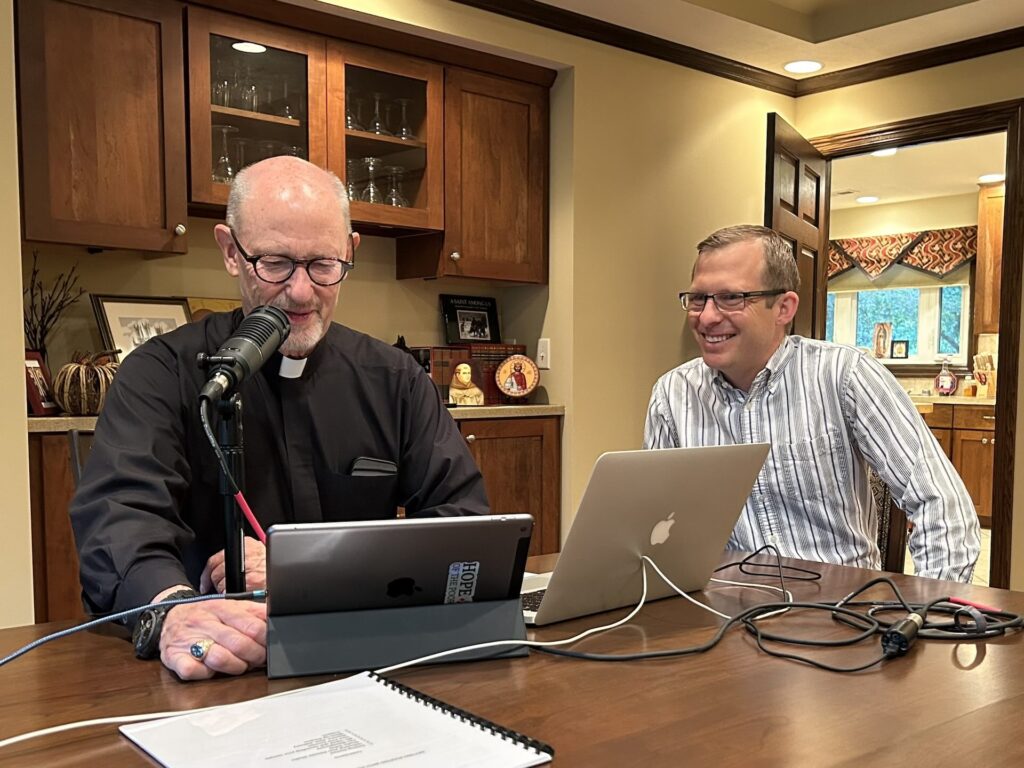Precept 5: You shall help to provide for the needs of the Church.
That fourth precept about fasting and other ascetical labors leads to the fifth.
When we give up things in order to be filled with God, this should prepare us both financially and spiritually to be like God, who is the giver of “every good endowment and every perfect gift” (James 1:17).
If we don’t indulge in drinks and steak on a Friday night, the money we save can be given away.
Thinking about what we can do with that extra money can serve as a good incentive to make the required sacrifice in the first place.
Traditionally, Christians have practiced tithing (giving one-tenth of one’s income).
Tithing can be done in very different ways, but it should not be confused with almsgiving.
As Christians, tithing is giving what is due.
This precept exists to assure that we indeed give our due.
Almsgiving, however, is giving above and beyond our due tithe.
During Lent, we are called to give alms.
If we give less than our due throughout the year and then give our due during Lent, we are not responding to the Lenten call to give alms, for we are not giving alms.
Rather, we are simply tithing, giving what was always due.
Focusing just on this precept, let’s consider the many ways one can tithe.
Tithing should always start with supporting your local Church.
Practically speaking, this means giving to one’s parish and the diocesan fund for its ministries.
After your local Church, one can tithe by supporting a good Christian educational group or Christian charity.
Tithing could also mean financially helping out a fellow parishioner in need.
Some people like to support many Christian initiatives, while other people will feel called to support only a few ministries with a majority of their financial support.
There really is no “right” way to do it so long as you are doing it.
And that’s why the Church is pretty broad about the precept.
Although most people interpret the precept in terms of money, it might be useful to think about this precept more broadly.
Many people have taken up the phrase “time, talent, and treasure” to denote how we should think of providing for those needs of the Church.
It’s a good phrase with a helpful order.
Time and talent are listed before treasure.
Where our money goes is a pretty good indicator of what we really value, but where we put our time and how we use the non-monetary gifts God has given us are just as good— and maybe better.
However, there is a downside to this phrase— time, talent, and treasure.
Some use this phrase to justify not financially giving their due because they feel they have given adequately of their time or talents.
As men, we cannot let this type of thought creep into our spiritual lives.
When we think about giving, we ought to be thinking about how all the gifts we give are tokens of our gift of ourselves.
The goal of life, as we said on the first day of this formation pack, is to live like Christ, who did not hesitate to give of himself, even unto death.
He gave himself up to the will of the Father, and he gave himself up for our salvation.
He wanted us to be free from sin and filled with his life, to be his brothers standing before God’s throne, praising him and participating in his life forever.
The precepts are the minimum due as Christians and a springboard— a gift— to launch us up the mountain of the Lord.
The precepts are a gift that set us free to be Christian men; men that are free to give.
On this final day, take a moment in prayer to consider how well you live out this 5th and final precept, “You shall help to provide for the needs of the Church.”
Then allow the Lord to encourage you and invite you to live a life that is so free and so full of love for the entire body of Christ that you can’t help but exceed all of these precepts from this day forward.




